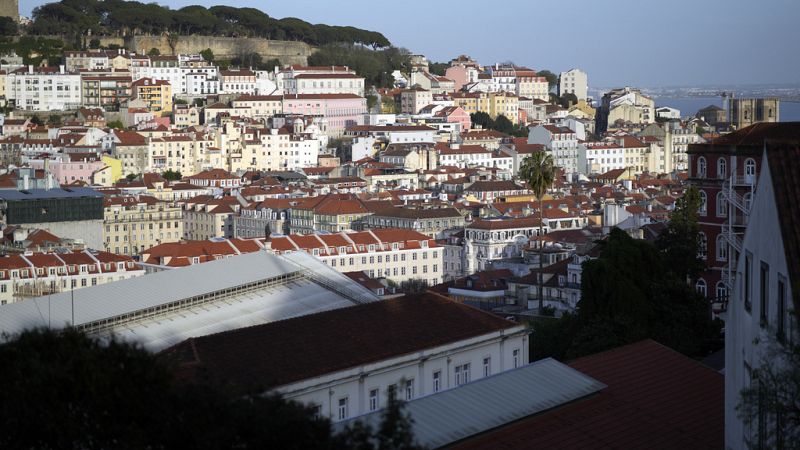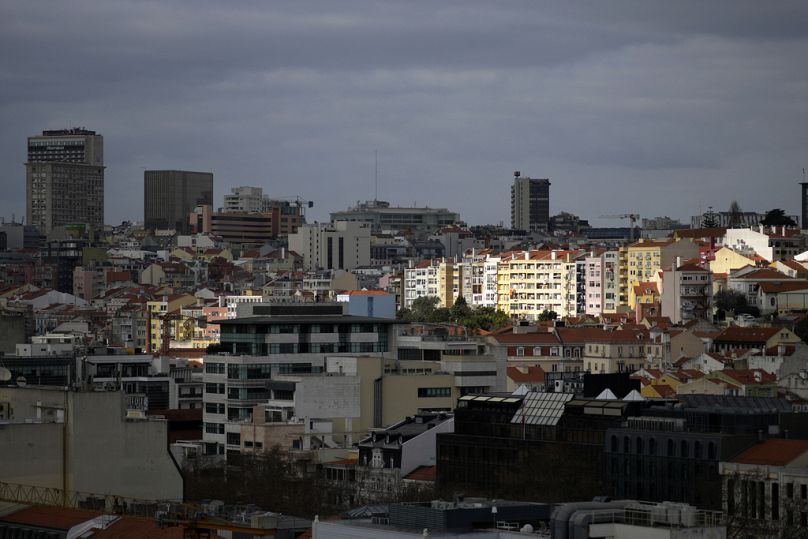Homes in Portugal are among the most overvalued, according to European Commission

House prices have risen dramatically across the European Union in the last ten years, and Portugal is on the list of countries where properties are most overvalued.
That's according to a report from the European Commission, "Housing in the European Union: market developments, underlying factors and policies", published on Tuesday.
Between 2014 and 2024, house prices in the EU increased by an average of 50%, "but in Hungary, Lithuania, Czechia, Portugal, Estonia, Bulgaria and Poland, nominal house price growth exceeded 200%," the report said.
The reasons behind the current state of housing in the European Union include higher interest rates, demand for housing from wealthier families and investors, an increase in short-term rentals, and a lack of new construction.
In certain locations, house prices have also diverged from their real value. The researchers estimated that the appreciation of house prices above their average real value is more pronounced in Portugal.
“Prices are estimated to be overvalued by around 35% in Portugal, which is the only country where overvaluation increased significantly by 2024.”
Tourism and short-term rentals
There are several reasons for the inflated house prices in Portugal, and some factors are more prominent than others. According to the European Commission's report, tourism and short-term rentals are among them.
"The increase in short-term rentals in tourist areas is closely related to the increase in house prices and rents," the researchers concluded.
The rise of home-sharing platforms such as Airbnb has disrupted the traditional property market, as it has contributed to the decrease in supply of long-term rentals.
"There is growing empirical evidence to suggest that the increase in tourism in general and the rise of home-sharing platforms in particular have contributed to an increase in rents and house prices in some prime locations, such as historic city centres," concluded the study.
Portugal is the EU country where tourism has had the "greatest impact on house prices", said the report.
This is also a problem in countries like Spain, where overtourism is a problem in big cities like Barcelona.
Institutional investment
In Portugal, the proportion of public housing is one of the lowest in Europe. Residential properties owned, managed, or subsidised by the government or local authorities represent around 2% of the total stock, according to a recent study by the University Institute of Lisbon (ISCTE).
According to the European Commission's report: "In some urban areas, part of the housing stock is owned by companies, and the long period of low interest rates has contributed to increased demand from institutional investors."
The report states that institutional investors, such as insurance companies and pension funds, "have played an important role in the rise in property prices over the last decade, particularly in global capitals".
In Portugal, pension funds have "significant exposure".
The problems around issuing building permits are limiting the necessary increase in public housing stock. In countries such as Portugal, Croatia, Spain and Greece, "building licences are close to historic lows", according to the report.
One of the reasons behind this is the lengthy bureaucracy.
"In most EU countries, there are fixed deadlines for issuing a licence, ranging from 3 weeks in Lithuania to 31 weeks in Portugal."
Added to this: "the licensing process in some countries is burdened by complex documentation requirements, which can create unnecessary delays and administrative burdens." According to the study, simplifying these requirements "could contribute to greater efficiency."
Vacant properties
The incalculable number of vacant properties is also restricting available housing in Portugal.
The report noted: "The issue of vacant properties represents a significant challenge across the EU, with approximately one in six properties estimated to be vacant across Europe."
And once again, Portugal appears at the top of the list of countries with the most vacant properties, along with Bulgaria, Romania, Malta, Cyprus and Hungary.
Portugal and the housing crisis
Housing has been a constant theme in Portuguese politics and it has brought recent governments under severe criticism, with demonstrations over rising rents and the lack of affordable housing becoming commonplace.
Suggested measures to tackle the problem include a new tax incentive aimed at construction, a step long demanded by the sector. VAT will be recued to 6% for construction up to €648,000. The 6% VAT rate will also apply to rentals of up to €2,300. In other words, the incentive will apply to construction meant for rentals not exceeding this value.
Regarding the €2,300 limit on rentals, the Prime Minister Luís Montenegro explained that this decision is based on "areas of greater pressure", such as Lisbon, Porto, and other municipalities where the average amounts are higher than this.
Most of the measures are tax-related and therefore depend on parliament's approval, but there are also several changes to the rental sector.
In June, the European Commission warned that Portuguese governments were not being effective in their response to the housing crisis and recommended concrete measures, such as rent controls or restrictions on some rentals.
Today



